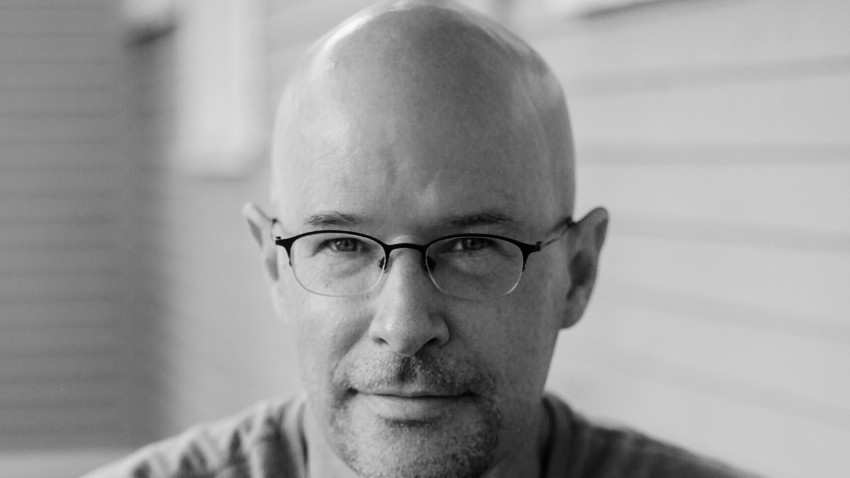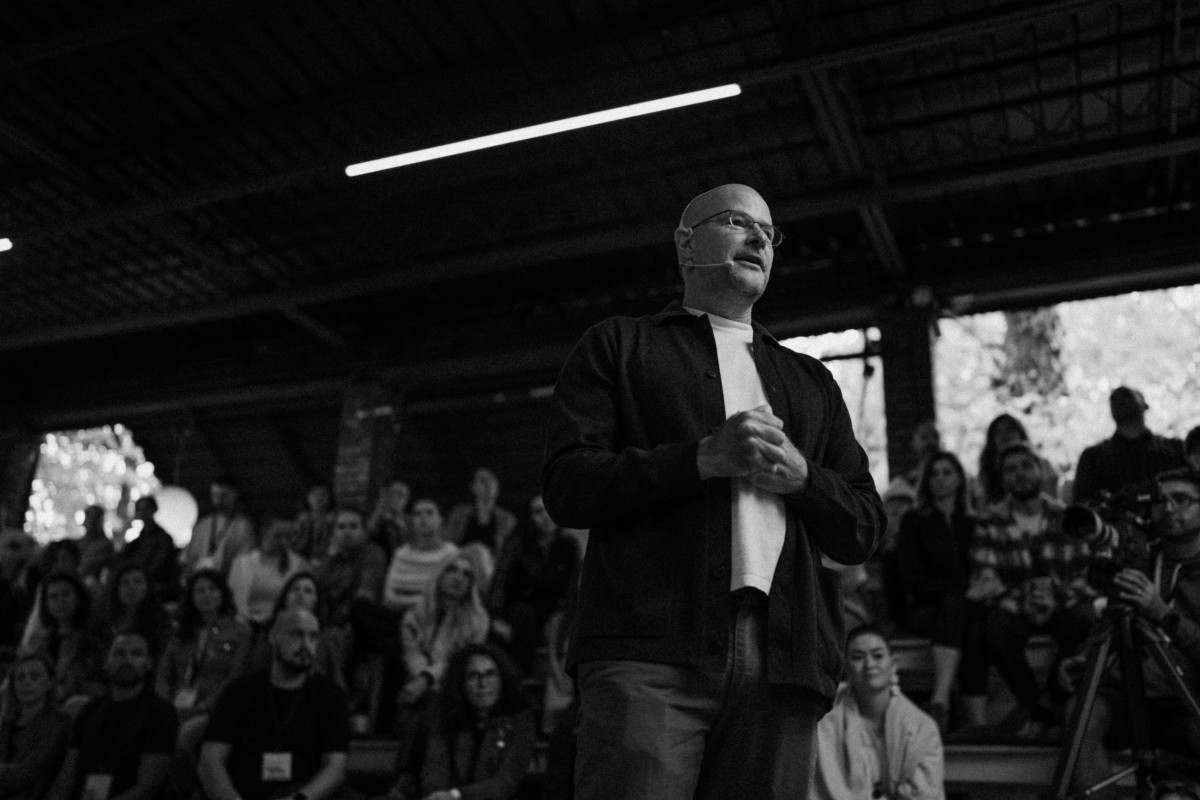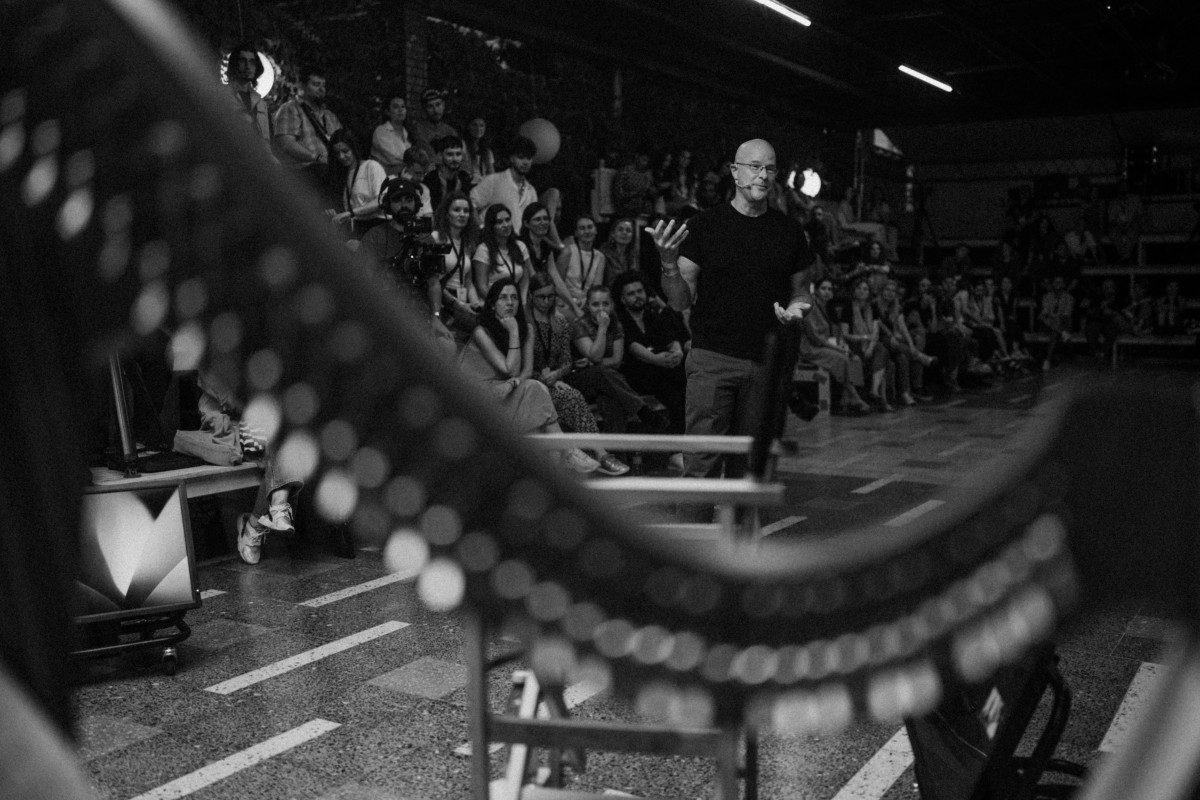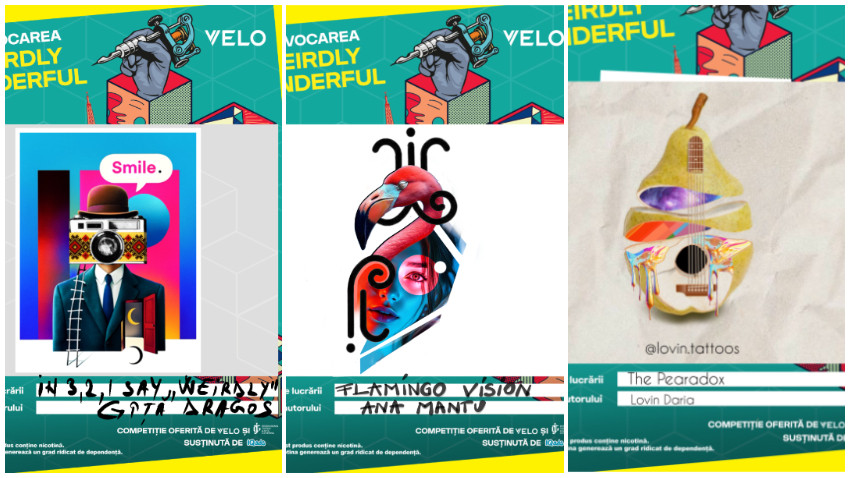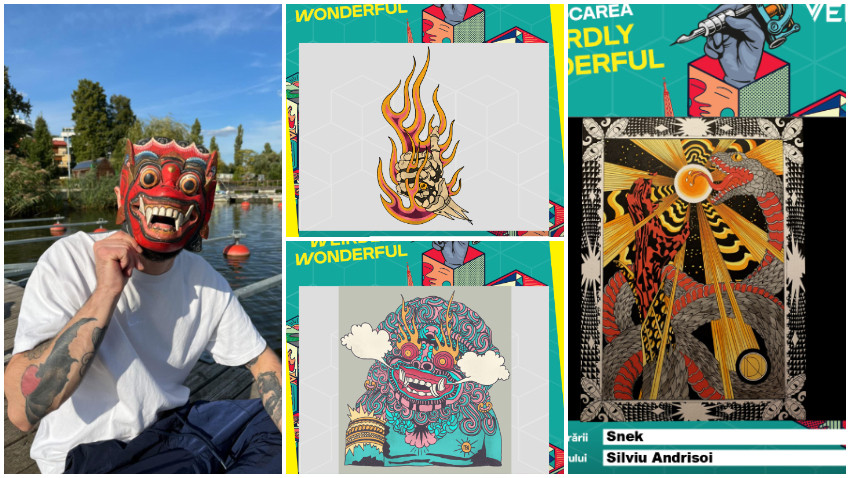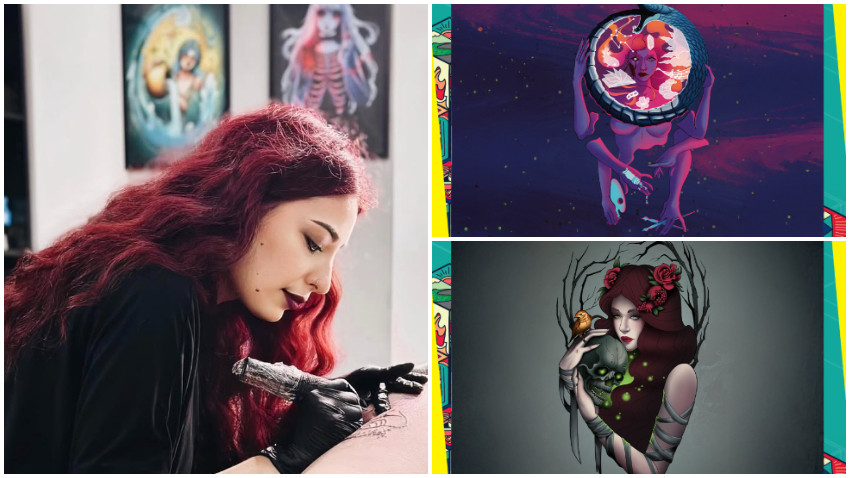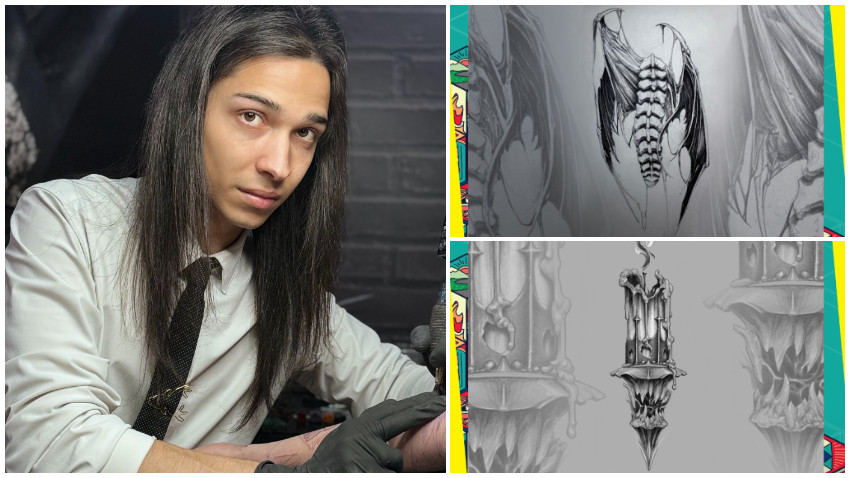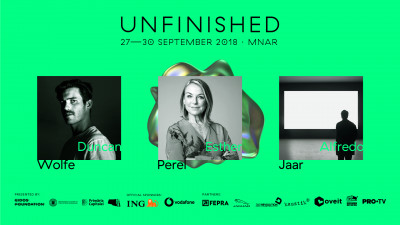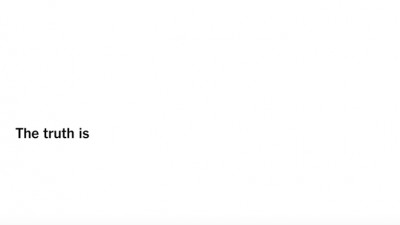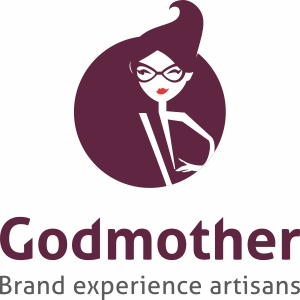The story of a single person can change minds across the world. This is what Daniel Jones, editor of the New York Times Modern Love column says, after two decades of reading, editing and publishing personal essays. The stories now reach 12 million people worldwide.
When we decide to publicly share a personal story, it is important to ask ourselves how what we have experienced and learned can contribute to social change and the betterment of the community we are a part of. At the same time, Daniel talks about how we write an essay, how we maintain the control of the story, even when we put our emotions and thoughts into it.
"You can be honest and might feel a lot of things, but if you can't organize those thoughts in a smart way and stay in control of your story, then it doesn’t bring any revelations for the reader, and no one will appreciate your honesty and vulnerability", says Daniel
Daniel Jones has been the editor of the Modern Love column in the New York Times for 20 years, an anniversary celebrated few days ago. Since 2004, Modern Love has transformed into a major franchise, including three books, a popular podcast and an original Amazon TV series.
At the end of last month, Daniel returned to Bucharest to be a part in a new edition of UNFINISHED, which had an interesting theme, #Praxis - the interaction between theory, reflection, and practice. In an exclusive interview for IQads, we spoke with him extensively about the healing power of writing, love in our times and the ingredients of a great story.
Among the books Daniel has written are: "Love Illuminated”, "Modern Love”, "The Bastard on the Couch”.
Chapters of your life story
I grew up mostly in Pittsburgh, Pennsylvania, my first six years were in Tucson, Arizona, then Pittsburgh, Pennsylvania, Virginia. I didn't know what I wanted to be in high school or at the beginning of college, and I think I was halfway through college when I discovered writing. I thought I would be a lawyer, or businessman, or whatever.
I went to the University of Virginia, they had a very good writing program there. I discovered writing and writing short stories fiction, when I graduated from college. I also had been a skier for a long time. I was a little kid and became a ski instructor and the main thing I wanted to do was go out west to Utah and be a ski instructor. That's what I did first, for a couple of years, then went to graduate school in Arizona, in Tucson, Arizona. That took me sort of all the way into the end of my 20s. I hadn't really done anything but write short stories.
Then the next phase of my life was about meeting my wife, getting married, having children, moving to New York, and then from New York to Massachusetts. And that phase lasted 30 years. I have a daughter who's about to turn 30, a son who's 26, and I had a marriage that lasted 29 years and ended three years ago. So, now, I feel like I'm in the last third of my life and sort of discovering what the last third of my life is going to be about.
The way you discovered that writing heals
There are different kinds of writing. I started with fiction writing, and I think reading short stories at that time that were by American authors that I admired, it just really stirred something in me to think about my childhood. It was the fiction stories that made me think about my own life in a way that felt like it led toward understanding healing is through understanding. It was sort of a revelation to me that through other people's stories you could understand your own story better and then that process becomes more direct when it's not fiction and it's personal stories, that are real.
There's a freedom in fiction, but in the nonfiction there's just a sense of reality and trust and vulnerability that's different, that's more liberating. In the early stages of getting people to write about their lives whether it was for a book I was working on or for doing Modern Love, I could not only see how it was cathartic and healing for the person writing, but I could see the audience’s reaction of hundreds of thousands of people who felt seen from seeing a story that was like theirs.
It's a bit of a cliché, but it is that sense that you're not alone in your struggles, especially in the age of social media, when everyone's trying to often put forth the good parts of their lives and that can make you feel bad about yourself if you're struggling. When people put also the struggle out there, it just feels like affirmation and a sense of connection to other people.
How 20 years of reading personal stories changed you
They made me braver, I think. People who are really struggling with how to handle a relationship or a parent, or how to handle things that are being unearthed in their lives, to see them face up to that instead of ignore, inspired me to do the same in a lot of ways - to think about my parents and to think about the people who are close to me in life, my children and my wife and other relationships I've had since we decided both to separate. It's made me feel less constrained about what I think there's a sense of constraint that most people feel about what they should do in order to not make waves.
When you're so exposed as I have been to all these people who have felt that constraint and then found a way past it, that's been inspiring to me personally.
Thoughts on writing your personal story in Modern Love column
I don't think that will happen any time soon. I still feel like I'm a behind the scenes person and Modern Love Column it's about other people's stories. It is interesting because now that we have the 20th anniversary, the past couple of weeks I’ve been working on a piece that talks about the lessons that the column has taught me. I've referenced some of what I’ve gone through in those lessons and what I've taken from them. This it's part of my story, could be part of your story too.
One of the lessons came from a really wonderful essay called “The 12-hour goodbye”, published about 8 years ago. A woman is in this room and she's thinking she was in a relationship that she thought was very solid. The guy ended up breaking up with her that really surprised her and caught her off guard. The relationship turned out had been good for her to nurture her passions. But when they broke up, she was just sort of in shock, disbelief and maybe felt betrayed. She was in therapy after trying to work through it and she understood the relationship had been good for her. She’d ended up getting a job that she wouldn't have gotten if that relationship hadn't sort of released this passion in her.
She was talking to the therapist about how frustrating it was that she couldn't forget him that she couldn't erase him from her life and the therapist told her that's not what she should be trying to do. She said she should say something like he awoke something in her that has led to her dream job, and the work for her was to be grateful that that happened. Instead of mourning that he's no longer in her life, instead of erasing him from her memory, she could be grateful for that experience.
And I think that's an incredible lesson. And it has to do with that relationships change you, sometimes in good ways, sometimes in bad ways, but it's growth regardless, if you take advantage of it. That's been a helpful lesson to me and I know when that essay ran it was helpful to a lot of people.
What were you looking for in the stories 20 years ago, when Modern Love started
I was looking for then what I'm always looking now, but I've gotten better at seeing it is. People who have been through something and they are wrestling with it and it's not about the writing, it's not about being an artistic writer or someone who can use metaphors. It's about someone who is truly grappling with a problem in their life and it almost doesn't matter to them if they say that story to a million people, or five people, or one person, or just to themselves, but there's an honesty to their process and a humility to their approach that's pretty instantly recognizable. This is what I look for.
You can tell if someone is sincere in what they're trying to say and that's what I've tried to publish from the beginning and that's what resonates with audiences and beyond that that's just sort of a tone and an approach. But I'm always interested in stories that are unlike my situation about people of different ages, people who have struggled with being single their whole lives, and are reconciled to that, or celebrating that. There's a lot of things we people share in common, but we're really different, and I love reading about different people's lives, and putting that out there.
Your job as an editor for New York Times Modern Love Column
I work with another young woman who helps me, mostly our job is to figure out how quickly we can reject something. So that's what we got good at, like being able to read a sentence or two and thinking this is not promising because just doesn't seem sincere or doesn't seem smart. Yeah, it's basically that. Or there's a third category, when people who write don't know what this column is and they're sending something that's not really appropriate in some way.
Then, I need to cut every story pretty much because the length that the column runs is always shorter than the length that we ask for. And then I like to get more out of the story from the writer. I feel like there are opportunities in different places, which is one of the things I've gotten best at, is being able to see opportunities for getting more.
I'll get more by talking to the person on the phone, and then I'll just write in what I feel like belongs there. It can be a lot of work. There are essays where I've, I don't want to say ghostwritten, but I've sort of stepped in and changed, with the person's okay and with their help, where maybe half of the essay will be completely rewritten. Those are most often cases with people who aren't professional writers or they have a very interesting perspective, so I'll sort of work with them almost as a ghost writer to fill in the parts that need to be filled in.
Most important when writing a story
Ideally is to respect a certain structure and to bring out emotion and thoughts when you write a personal story. I always say that a good personal essayist is also like how would be on a good date. I mean, it’s unattractive if you're vulnerable to the point of being a mess and being inarticulate or out of control. But if you can be vulnerable without losing control of yourself, that's very seductive because the person in front of you feels like they have access to you, but you still have control of yourself.
It's the same thing with writing - you can be honest and might feel a lot of things, but if you can't organize those thoughts in a smart way and stay in control of your story, then it doesn’t bring any revelations for the reader, and no one will appreciate your honesty and vulnerability.
The attributes of a great story
I think it's important how a story is told, so that you want to find out what happens when you're reading the story. That is natural if you're writing fiction, you want to tell a story in a way that people want to find out what happens. But when people write about their own lives that's harder because they have a tendency to think “Well this is too big of a story to tell in five pages so I'm just gonna summarize it all”. I think the biggest weakness I see in the stories I read is that people summarize a lot and just talk to the reader without taking them deep into anything. They write on the surface, forgetting that they need to tell a story, and end up just giving a kind of summary of their lives.
What's good about Modern Love within the newspaper is that people read it to the end in most cases, don’t read the beginning of the story and get all the important information, then stop. I think it's very important that you structure your story in such a way that it's a mystery what's going to happen, so that people want to find out what happens, they want to read all the way to the last sentence.
What people look for in the stories from Modern Love Column
I think people read Modern Love for the emotion, honestly. They read it for the understanding, but I think the main thing that people read Modern Love for is an emotional punch. There are a lot of these essays that really pack a punch and make people feel things and that's what people read it for.
The most popular themes
The most popular subjects in recent years are polyamory and major age gaps in relationships - someone who has gotten together with someone who's 20 or 30 years younger. For some reason people love those essays. We've done several that have to do with sperm donation, sort of tracing things where families materialize out of nowhere based on discoveries on DNA. Also doing the best with readers are the stories about someone losing someone dying. That's more than half the stories we get with this theme and that makes those very hard to take on because it's not exactly a column about death, but we still run a fair number of stories like that.
The headline of a story
I write the headlines about 99% of the time. Every once in a while, a writer's headline will work. But the headlines are so important. The subject line for someone's essay is so important. The headline is the version of that, it is what readers see first. And with social media and with the way that it appears on the Times website, that's all they get. Whether they click or not the headline, it has to be really good. If the headline's really good the piece does really well and if the headline's not good it doesn't matter how good the piece is it won't get read at the same level.
The start of an essay
Let me give you a specific example. If you start a story saying “I met my wife when I was in college”, then you're giving it away. You're giving away the fact that this is the person you ended up marrying and the story can go somewhere else from there. But you should not be giving things like that away at the beginning of the story. You should say “I met Susan”. And then let the reader discover and wonder what's going to happen. You've got to stoke a sense of mystery and wonder in the reader. Context is very important too. So, there's a setting and then a context.
About the context
Just to give again an example, let me tell you about another story I wrote just recently for this article for the 20th anniversary of Modern Love column, which is these days.
So, a young woman, I think she's in her late 20s, is writing about working in a flower shop. She lives in Portland, Oregon, and she's just writing about flowers and how they're arranged, what they mean, and how you use them at weddings or when someone has died. And she wrote something „Flowers die quickly, and the petals fall all over the place, and they become a mess”, and she was just talking about that. Then, about a third of the way into the story comes the context: her high school boyfriend died by suicide when they were both 18. Then she goes back and forth from that context to the flower shop, finally arriving at this thing: “But everything dies. Flowers die, people die. There's no permanence to anything, but certain things are beautiful in their impermanence. And flowers are and a short relationship can be”.
A powerful story will have a setting and have a context that creates a whole new meeting. And that's a more sophisticated kind of storytelling, but really can have a lot of impact.
The ending of a story
Well, ideally, the ending will indicate a new level of understanding of what's been leading up to that. So, I've always said that a happy story or a sad story isn't happy or sad from what happens in the story. We all have happy times and sad times, but something that's happy to me is understanding. I read a lot of stories where the person doesn't seem to understand anything more at the end than at the beginning, and that to me is a sad story. Whereas, to actually understand something and be able to communicate that understanding to a reader is a real gift and often that understanding is what comes at the very end. And that's why an ending can be so important.
How we love in modern times
I think there are two strands to that. I think the way technology has overtaken us, in a way, is one strand, and the other is the social acceptability of different kinds of relationships and how quickly gay marriage became something that went from a lot of opposition to acceptance in a very short amount of time. So, I feel like those social changes have happened dramatically in the past 20 years and technology is like the double-edged sword. It's allowed people to connect in all kinds of ways that they haven't been able to in the past and to find relationships beyond their village and outside of an oppressive society or family. It's allowed that kind of connection and to find a community that doesn't have to be a physical community near you, and I think that's been really healthy. But it's also become sort of a barrier between people and something to hide behind. I see a lot of socially paralyzed people because the coldness of technology can both be incredibly liberating and it can also just be sort of paralyzing and become like this barrier. It's just this tool that you can use to find people and to find the community, but it can create a lot of loneliness and a lot of isolation and addiction.
Social media’s impact on Modern Love
I think that social media is less influential now than Facebook was 10 years ago, when it was the biggest driver of readership to Modern Love. Now it's like 5%. So social media's influence has declined a lot. And it used to be the place where people talked about stories. Now, Instagram became more popular than Facebook, TikTok too, but these aren't talk forums the same way like Twitter and Facebook are, so they don't really come into play with Modern Love. Also, New York Times changing its business model, to go from being free to being behind a paywall, reduced the influence of social media in terms of drivers because people would get driven to the story and then it would be behind a paywall. So now it's really Times subscribers which there are a lot. There are like 12 million or something. And that's the audience.
The Modern Love Podcast
The podcast was started by a national public radio station in Boston. It was not related to the New York Times. Now, the podcast it's in the New York Times, but it was started before the NY Times had an audio operation. It was like 9 years ago, the Times got an audio operation because of the success of the Modern Love podcast done by this radio. They saw an opportunity to tell stories as part of their menu. They meant it as a radio show, not a podcast. Podcasts weren't really as popular at that point. It took them three years to get the rights to do it from that radio from Boston. And over those three years, podcasting became the thing. It was a really successful podcast that they did for four years in that time the Times got its audio unit and then they ended that contract and then brought the podcast in-house during the pandemic.
I was a host of it along with my colleague Miya Lee for a couple of years, that was really hard. Now they have a good professional host and they're still trying to figure out what the best format is. But there are celebrities telling their stories, there are actors reading stories sometimes talking to the author, they approach it a bunch of different ways. They're very keen on having audio format by itself, not just replicate what was in print.
The power of long form written stories in times when audio and video are so popular
I think it's less about reading versus video or audio than it is about just that how many options people have for spending their time. The television is in turmoil right now because there are so many ways people can spend their time consuming media. The television streamers are just in turmoil over their business models and grabbing this ever-shrinking piece of a pie and I think that's the biggest challenge - everybody's become multimedia, so I think it's less about print alone, it's all about these mediums competing for people's attention. The internet has stolen so much of that and fragmented so much of that. It’s like everybody's trying to get attention. One of the biggest metrics at the Times now is how much time people are spending on a story and that's the biggest indicator of success to them. Not how many people click on a story, how much of people's time they can get and the more time they get, the better is for advertisers.
#Praxis. A personal perspective
I guess I could answer it this way. In doing the work I do, I see people weighing and being nervous about the public perception of them. People weigh whether that's a good idea, or not, to offering up their private life for public criticism and consumption, if more good comes out of that, or not. Or will it be a mix? It’s like something that you might regret or celebrate or just feel good about. So, I'm interested in that sort of dividing line and what people are doing when they're offering up their private story to the public.
There's a sort of professional part of it where people see career goals and see like publishing a book or getting exposure or getting a print credit and there's all that kind of part of it which is just you're trying to further your career. But, then there's this personal part of it it's like “do I want to put this into the world? What good will it do to other people what good will it do for me?”. There can be a hesitation and a bravery and I feel like when the bravery wins out, that's praxis.
Some advices and tips for young writers beginning their careers
I would say what I was told when I was in my early 20s, that I didn't want to believe, which is “Be patient”. It's gonna take years, writing is not something, or it's rarely something, where you just sit down and you decide you want to be a writer and then you get immediately rewarded for it. I think it takes years to find your voice and to trust that, what you have to say, is worth hearing.
I always sense in young writers that they want to know what they should write about and what's the hot topic and what should they’d be writing about. I think that needs to burn out of people. I think they need to write about what's really meaningful to them and that's not immediately obvious, you know? It takes time to figure out and to trust that other people want to hear it too. It takes a while for people to have the confidence to own their story. Write about what you know. That's totally old advice, and it's been said a million times. But I wouldn't even say it's right about what you know, which feels like you need to know something. Write about what you want to discover about where you're from or who you are. But you want to write with curiosity, not knowledge.
Will you be writing soon a new book?
I would like to write a book, yeah. I have a book proposal right now that I haven't finished because I haven't had time to. I don't want to sell a book when I don't have time to work on it but I'm writing, I have about maybe a third of the material. It is a book about how to write short personal narrative, so that's my next book which I hope that, after this 20 years Modern Love anniversary, I start working to.
Coming back to Romania for UNFINISHED
I came once before the pandemic, did it once during the pandemic remotely and then I think I've come three years in a row. It's become so nice to have it in this space (n.r. Casa Universitarilor) and I always like the feeling of generosity that's here and I like all the parts that make UNFINISHED. I think most people come and they do their thing and there's no reason for them to come back next year. But they do it again, because this is just about storytelling and the stories always change.


